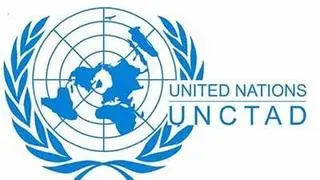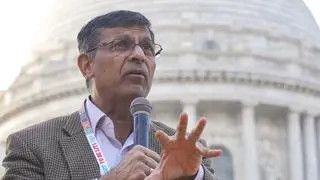Mukesh Aghi, President, US-India Business Council (USIBC), said although India has given verbal assurance on not issuing compulsory licences for generic drugs manufacturing, the American industry is keen on a written declaration. In an interview with BusinessLine , Aghi also said the government should revisit the draft model of the Bilateral Investment Treaty (BIT). Excerpts from the interview:
The US Ambassador to India Richard Verma recently expressed concern over India’s taxation regime and IPR laws. He also said along with addressing these, India and the US should conclude the Bilateral Investment Treaty (BIT) to augment investments and reach the set-target of $500 billion bilateral trade?
Yes – we agree. However, we want to note the significant reforms that have been made on all fronts. The government has resolved more than 100 pending transfer pricing cases and removing a major deterrent in foreign investments entering India. Dispute resolution is now a realistic alternative for India. Long-term protracted litigation has had a chilling effect on sustainable investment in India. Then, the introduction of Bankruptcy Code that aims to consolidate all insolvency laws, streamline processes and early detection, and provide legal certainty and speed for business closure. The Bill is on schedule to pass in the second half of the Budget session of Parliament.
How critical has concluding the BIT become to unleash the real investment potential between the both countries?
A bilateral investment agreement would be beneficial to both the US and India, as it would signal protections and a fair process of arbitration, should disputes occur.
Companies look for predictability, transparency, and clarity and BIT frameworks provide these basic levels of assurances, which help in making investment decisions. However, in its current form, India’s model BIT contains gaps which would prevent it from finalising an agreement with the US. We recommend to the government to revisit not only some of the substantive protections and procedural mechanisms included in the model, but also do so from the perspective of projecting a willingness to open trade and to provide a stable investment environment in India.
The US still seems to be concerned about India using the provision of compulsory licensing when it comes to pharmaceuticals despite repeated assurances from the government that it will be used only during emergency. What is the industry view?
It is true the government has reassured industry verbally in meetings that they will not use compulsory licences. However, verbal assurance could be easily undermined if personnel or government officials change swiftly. Investor sentiment would be more confident if the government provides a written declaration, saying they have officially disbanded the inter-agency compulsory licence committee and that compulsory licences will not be used except under situations of public health emergencies.
A recent US Trade Representative (USTR) report has labelled India as a ‘notorious market’ in terms of IPR infringement and patents. What is the USIBC’s opinion?
India has dedicated resources to enforcing copyrights and preventing pirated goods from entering the market. USIBC looks forward to working with the Indian government’s enforcement authorities to ensure that the inflow of fake and pirated goods is prohibited and enforced. The US and Indian authorities have previously cooperated on raids of markets and other locales of pirated goods and looks forward to collaborating and training for greater enforcement.
Although the government says it is taking all measures to strengthen the country’s IPR and patent laws, India continues to feature in ‘Priority Watch List’ category of countries in Special 301 Report. Will it be repeated yet again this year?
Our members feel that significant progress has been made on IPR in the past year. Most recently, USIBC was encouraged by the government’s Start-Up India Initiative. Industry is eager to see some of the positive expressions translated into actual policies and eagerly awaits the release of India’s final IPR Policy.
The government has exceeded the deadline for releasing the National IPR Policy. What, according to you, could be the hurdle?
The release of the National IPR policy is a government issue, so I wouldn’t want to comment on that. However, I would like to point out that in the process of framing its policy, the Indian government has been extremely open and collaborative with industry over the past year, often meeting with industry to discuss IPR issues and approaching discussions with a willingness to solve problems quickly.







Comments
Comments have to be in English, and in full sentences. They cannot be abusive or personal. Please abide by our community guidelines for posting your comments.
We have migrated to a new commenting platform. If you are already a registered user of TheHindu Businessline and logged in, you may continue to engage with our articles. If you do not have an account please register and login to post comments. Users can access their older comments by logging into their accounts on Vuukle.